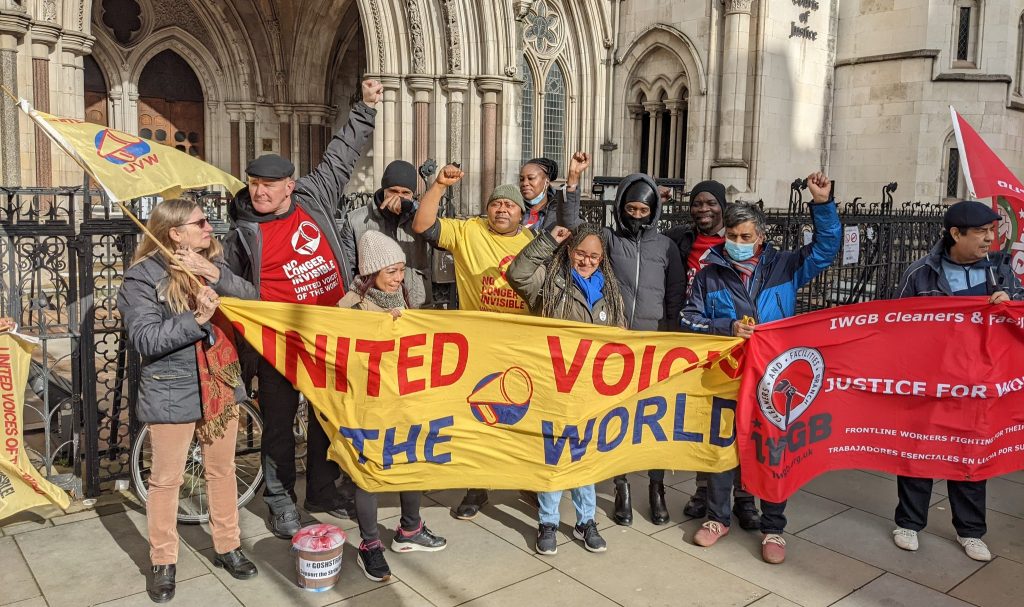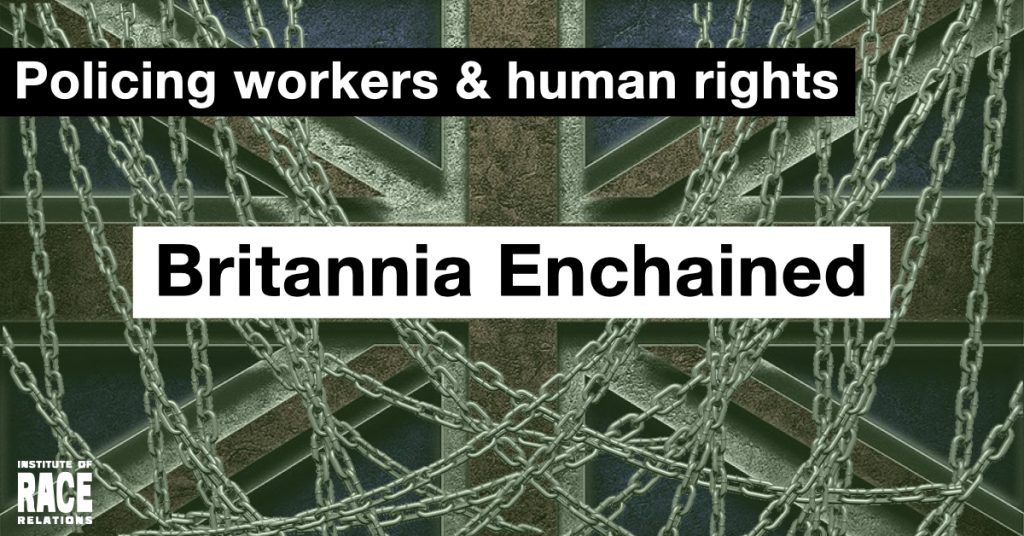Policing workers
As more and more people – nurses, transport workers and other key public sector workers whose jobs can’t be automated (yet) – rediscover the power of collective responses to plummeting real wages, among them many BME workers, hit hardest by the accelerating cost of living crisis, the government is again cracking down. A string of employment rights, including maternity and holiday pay, will be jeopardised by the revision or removal of EU standards contained in roughly 4,000 incorporated regulations from UK law by the end of the year through the Retained EU Law (Revocation and Reform) Bill. And in response to the waves of public sector strikes, the government’s rhetoric about protecting the public by ‘crackdowns’ on strikes has turned into action. in July, the maximum amount of damages payable by trades unions in consequence of unlawful strike action was quadrupled to £1 million for large unions (over 100,000 workers), and the ban on using agency workers to cover for striking workers was lifted. In October, the Transport Strikes (Minimum Service Levels) Bill was introduced.

In January 2023, with unions in nursing, teaching, transport and the civil service striking or balloting members, a further bill extends the requirement of minimum service levels during strikes (leaving this to be defined by ministers in regulations) to workers in health, borders, education and fire and rescue services, with the ban on sacking workers for industrial action lifted for non-compliance – a move that hits migrant workers particularly hard, as their visas are tied to their jobs, loss of which can lead to loss of residence rights and possible deportation.
As with the anti-refugee legislation, the prime minister and the business secretary Grant Shapps claimed that the Strikes (Minimum Service Levels) Bill had the ‘international seal of approval’ and was backed by the International Labour Organization. Like UNHCR, the ILO chief denied that the measures had his support, expressing concern that workers might have to accept ‘below-par’ situations to avoid losing their job.
Policing human rights
The National Security Bill, considered earlier in relation to journalism, also contains clauses that continue the twin processes of extending the immunity of government agents and eroding universal human rights protections. Clause 30 (previously clause 23) gives ministers and officials effective criminal immunity for assisting or encouraging crimes abroad such as unlawful targeted killings or torture interrogations, by disapplying Serious Crime Act 2007 provisions criminalising encouragement of crime overseas, when the official’s action is deemed ‘necessary’ for the functions of the intelligence services or armed forces. Other clauses could prevent torture survivors obtaining redress in UK courts.
The Judicial Review and Courts Act, which came into force in July, already allows ministers to escape the effects of illegal decisions by giving judges the power to make quashing orders prospective only. A month after the Act came into force, justice secretary Dominic Raab was looking for further changes to make successful legal challenge to official decisions even more difficult.
Sunak’s government, like Johnson’s and Truss’s, has shown that it believes firmly in the selectivity of rights, their reservation to those who ‘deserve’ them, through birth, education, wealth or high office. The sense of entitlement among ministers is antithetical to the survival of the system of protection of universal human rights in the UK. Its demise has loomed larger since June, when justice secretary Dominic Raab introduced the Bill of Rights Bill to parliament in response to the ECtHR’s interim ruling stopping the deportation flight to Rwanda. The Bill, which would repeal the Human Rights Act and reduce the influence of the European human rights court, ignored the findings of the independent Review of the HRA (which found the Act to be effective in protecting both parliamentary sovereignty and individual rights), and the warnings of four parliamentary committees of its constitutional importance and lasting impact.
The Bill was paused in September by then PM Liz Truss and is still to have its second Commons reading. It calls into question the nature of human rights, by making their vindication conditional on the behaviour of the applicant, and creates ‘an acceptable class of human rights abuses’ in the words of Law Society president Stephanie Boyce, by barring claims based on violations deemed not to have caused ‘significant disadvantage’. It removes the ability of those whose human rights are violated by British soldiers abroad to enforce them in the UK courts. It stipulates that interim injunctions issued by the European Court of Human Rights, like that which grounded the June Rwanda deportation flight, will no longer have effect. And by effectively reducing the rights of prisoners and deportees, who will be unable to rely on their family life in the UK avoid deportation unless the harm caused by deportation is ‘extreme’, it entrenches the idea that some people’s rights are more important than others, which as the JCHR pointed out, runs counter to the central principle of the universality of human rights. Prof Philippe Sands KC, who sat on the 2013 commission on a bill of rights, said the Bill’s ‘nationalistic and xenophobic spin on the idea of human rights’ ‘eviscerat[es] one of its most fundamental tenets: that basic human rights exist for all, and must be enforceable at the instance of all’.

